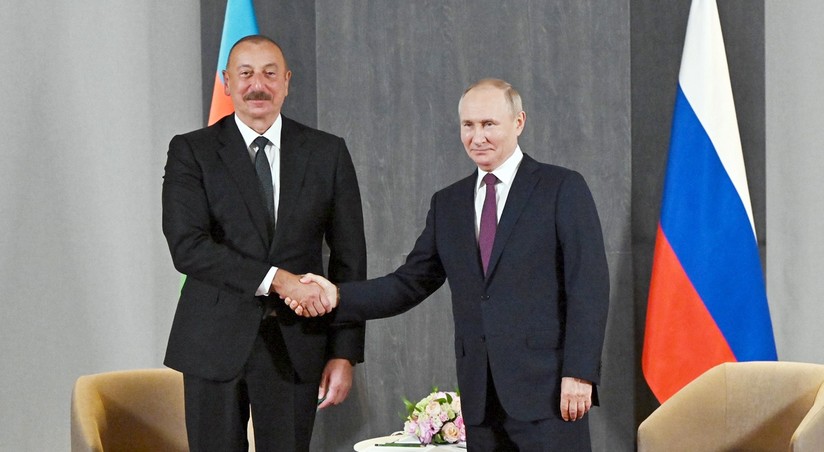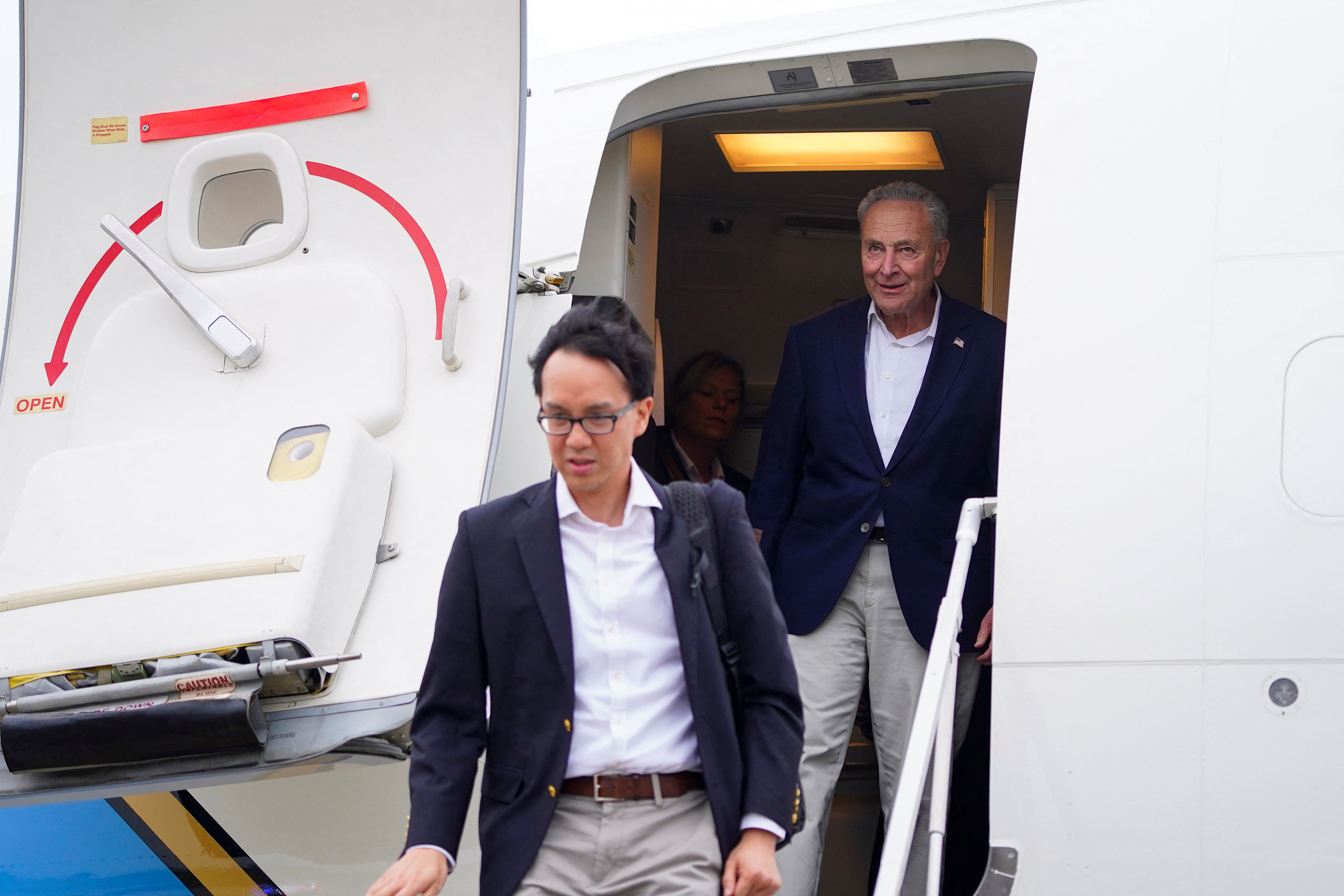Maldives President-elect Mohamed Muizzu’s election victory has put South Asian countries’ attempted balancing act between China and India into the global spotlight.
Muizzu is known as a pro-China politician, and analysts predict he will try to institute some pro-China policies. At the same time, they think India’s active presence in the Indian Ocean archipelago will force Muizzu to strike a delicate balance between Beijing and New Delhi.
“Muizzu tapped into the anti-India sentiment [during the campaign] and he certainly will try to distance his government from India to some extent, but I don’t think this means he is going to jump onto the China bandwagon,” David Brewster, a senior Australian National University research fellow, told VOA by phone.
“India’s interests are much broader and deeper across the Maldives. In the security sphere, India is building a new coast guard base near Maldives’ capital, Malé, and they also have various projects around the Maldives,” he added.
While it remains to be seen what actions Muizzu will take to fulfill his campaign promises under the “India Out” slogan, Brewster said he thinks India’s deep involvement in Maldives will make Muizzu feel “restrained and act cautiously.”
Muizzu, backed by a coalition that calls for closer ties with China, won Maldives’ presidential runoff September 30, beating incumbent president Ibrahim Solih by winning 54% of the vote.
The election was viewed as a virtual referendum on China’s and India’s influence on Maldives. Muizzu vowed to reduce India’s presence in Maldives by removing the 75 Indian military personnel stationed in the archipelago.
At an event celebrating his electoral victory on Monday, Muizzu said he would stick to his campaign promise. “We will send back foreign soldiers in the Maldives,” he told a group of supporters.
Traditionally, India views Maldives as part of its sphere of influence in the Indian Ocean, and under outgoing President Solih, who adopted an “India First” foreign policy since coming to power in 2018, New Delhi has kept a small group of soldiers in the country for “humanitarian purposes.”
In addition to the regular military presence, India has provided Maldives with defense-related facilities and equipment in recent decades, including a military hospital, a coastal surveillance radar system, and the Greater Malé Connectivity Project, a $500 million infrastructure project connecting Malé with several nearby islands.
However, Muizzu’s party has voiced concerns about the two countries’ elevated security ties.
“The argument that Muizzu’s party put forward was that India was infringing on Maldives’ territorial integrity by stationing 75 Indian military personnel on one of the islands,” said Yogesh Joshi, an expert on South Asian affairs at the National University of Singapore, by phone.
Despite growing skepticism toward India in Maldives, some experts say they think Muizzu will have to consider other factors, such as infrastructure projects supported by India, when he decides how to manage Maldives’ relationship with New Delhi.
“There are more things that Muizzu has to consider, and this process will have a sobering effect on him when he takes over the office soon,” Srikanth Kondapalli, professor of China studies at India’s Jawaharlal Nehru University, told VOA by phone.
As for India’s government, Brewster said he thinks it will continue projects it initiated under the previous government, including the connectivity project and the new coast guard base, while working out a new approach to engage with Muizzu’s administration.
In a brief statement on social media platform X, formerly known as Twitter, Indian Prime Minister Narendra Modi congratulated Muizzu on his election victory and vowed to keep strengthening bilateral ties with the Maldives.
While India has enhanced cooperation with Maldives over the last five years, China has been expanding its presence in the Indian Ocean archipelago since 2010.
Beijing funded a number of infrastructure projects under its Belt and Road Initiative, causing Maldives to owe $935 million in sovereign guarantees to Chinese companies and another $600 million to the Chinese government, according to figures shared by Maldives Foreign Ministry in 2019.
Since Muizzu will likely focus on reviving economic ties with China, Brewster said he thinks his government should carefully weigh the risks and benefits of such an attempt.
“I’m not sure to what extent Muizzu will reopen the floodgate to major Chinese infrastructure projects, but [since] Maldives is still highly indebted, any additional amount of debt that the country takes on will be a real problem for them,” he told VOA.
As for Beijing, Joshi said he thinks it will try to reduce India’s involvement and present Maldives as a shining example of the Belt and Road Initiative.
“China would like to capitalize on the domestic political change in Maldives,” he told VOA. “They will try to not only recover its lost space but also consolidate its security and economic presence in the country.”
Following Muizzu’s victory, Chinese leader Xi Jinping congratulated him Tuesday, saying that he attaches great importance to the development of bilateral relations between Maldives and China and stands ready to work with Muizzu to carry forward the friendship.
Despite his seemingly pro-China and India-skeptical stance, Brewster said he thinks Muizzu will try to play a balancing act between India and China rather than tilting too much toward Beijing.
“He will maintain the primacy of India in foreign policy and security while also reopening economic links with China,” he told VOA, adding that such a balancing act has been a common approach adopted by other South Asian countries, including Sri Lanka and Bangladesh.
While Muizzu’s victory may suggest a recalibration of Maldives’ foreign policy approach to some extent, Brewster said he thinks it will not significantly affect the competition between China and India in South Asia.
“I don’t think this election adds anything different,” he told VOA. “In each South Asian country, there is a pendulum that seems to swing back and forth between tilting towards India or tilting towards China, and that exact dynamic has been playing out throughout the region. This is just another swing of the pendulum in Maldives,” he said.



